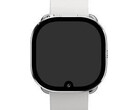Mark Zuckerberg made sweepingly optimistic and idealistic claims while unveiling Facebook's conversion to Meta, such as assertions that its new AR/VR-focused services would prioritize user safety and privacy "by design". However, Frances Haugen has recently disputed these claims.
Haugen has based these new projections on observations that bringing Meta's offerings into one's home involves the presence of multiple sensors and mics, the data-gathering potential of which may be difficult for the user to control or even track accurately.
Ultimately, Haugen argues, one would end up having to "trust [Meta] to do the right thing" with respect to user rights and welfare, a thing with which the company has a questionable record throughout its history as Facebook.
Meanwhile, those who want to make a living on the Horizon Worlds environment (powered by hardware such as its own Oculus Quest line-up) may face potential adversity of other kinds. Meta will reportedly support the sale of goods (which would manifest in forms such as NFTs) on this platform - however, it may take a sizeable cut of each transaction.
This is reportedly made up of an initial 30% free that goes to Meta itself, which would bring its charges into line with those paid to Apple by developers wishing to monetize iOS or iPadOS apps. However, there is also a reportedly planned cut of 25% thereafter, levied by Horizon Worlds, for a grand total of 47.5% of each sale. This would leave the creator with $0.53 of every US$1 they make on the platform.
On the other hand, this new scheme is currently available on a trial basis only, and may not make it to the general user-base as yet.

























